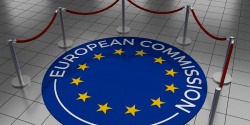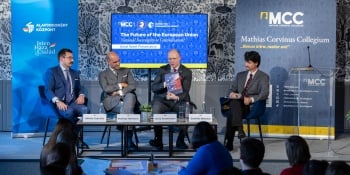Published: 18.08.2022

· The Conference on the Future of Europe - CoFoE was held in the European Union for a year.
· The project was intended to be an opportunity to listen to the will of EU citizens as regards the direction of reforms in the Union.
· In fact, CoFoE was used by EU stewards to obtain a bogus social card for their long-planned changes and projects.
· From the beginning of the Conference, Ordo Iuris has followed this project and has alerted about the dangers through debates and publications.
· The Institute has published a commentary summarizing the CoFoE-related events so far.
· Ordo Iuris emphasizes that the recommendations of the Conference are aimed at changing the division of competences between the EU and states, including in the field of health protection or to limit media pluralism.
· The Institute also highlights a number of procedural flaws.
At the beginning of May 2022, a great EU project ended - the Conference on the Future of Europe (CoFoE). It was an event lasting a year, consisting of numerous smaller conferences, debates and meetings, which, according to the declared assumptions of the organizers, was aimed at giving the floor to citizens of the EU Member States, so that they could indicate - on principles reminiscent of direct democracy - what direction the EU should take in the coming years "in accordance with the will of the citizens".
As indicated by experts from the Ordo Iuris Institute, the entire project not only did not arouse the interest of Europeans, but, above all, did not meet the declared democratic standards. For example, it is impossible to determine what was the procedure for appointing individual citizens to participate in citizens' assemblies. The board of the conference also admitted the right to "develop (...) conclusions from the plenary session of the Conference and present the final result of the Conference (...)", which means that, regardless of what opinions were expressed by citizens participating in the consultations, ultimately on their selection and shape and the direction was "watched" by the Conference Board (co-chaired by people such as Guy Verhofstadt). Organizational ambiguities, a lack of procedural and financial transparency, and manipulation of the selection of experts led to the official withdrawal of the entire group of European Conservatives and Reformists (ECR) from the Conference.
The Institute indicates the threats that may result from the implementation of the Conference recommendations. They include, among others transfer of health policy to the so-called shared competences, which would probably limit the sovereignty of states in this area. It could also mean the necessity to accept, for example, imposing legalization of abortion. The authors of the recommendations also call for "support for digital platforms ensuring media pluralism". This postulate may mean an attempt to strengthen mainstream media platforms presenting a specific narrative at the expense of the freedom of media presenting different views.
The problems described above raised Ordo Iuris' doubts from the moment CoFoE began to take real organizational shapes. At the beginning of May 2022, before the official end of CoFoE, representatives of the Institute, at the invitation of the Identity and Democracy faction, took part in a debate organized in the EP in Strasbourg on the dangers of CoFoE. On July 12 in the European Parliament in Brussels, during an international conference organized by Ordo Iuris in cooperation with the MEP Witold Waszczykowski's office, a comprehensive "Commentary on selected proposals of the Conference on the Future of Europe" was presented. Its authors substantively referred to the key recommendations formulated as part of the CoFoE final document.
“A number of activities undertaken by Ordo Iuris, including conferences and publications, seem to be bearing fruit today. The Ordo Iuris Institute was the only one to refer to the CoFoE proposal so broadly and substantially. The topic of the Conference on the Future of Europe became present in the public debate, and Ordo Iuris' commentary on selected Conference proposals was appreciated by MEPs. This is important in the coming months and years, when the Union will take action to implement the recommendations of the Conference, ”emphasizes Anna Kubacka, an analyst at the Ordo Iuris Center for International Law.

09.04.2025
• On April 8, the Ordo Iuris Institute presented the Polish version of a document with proposals for reforming the European Union, prepared jointly with Hungary’s Mathias Corvinus Collegium (MCC).

08.04.2025
Sixth Court Hearing Ends Without Progress

07.04.2025
In response to the liberal left’s self-proclaimed “militant democracy” in Poland and
